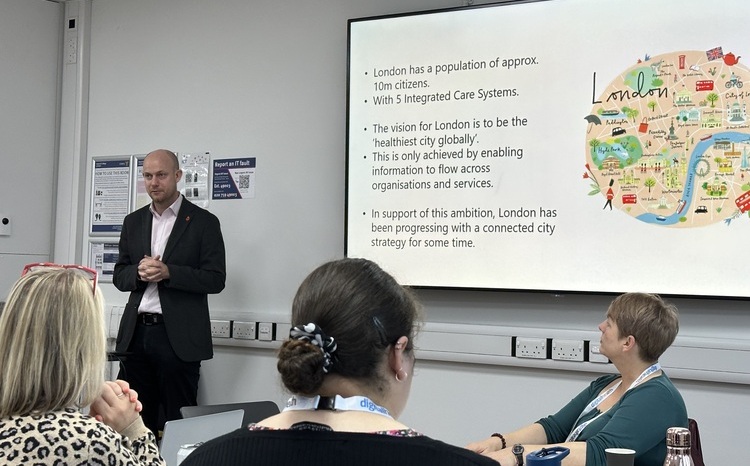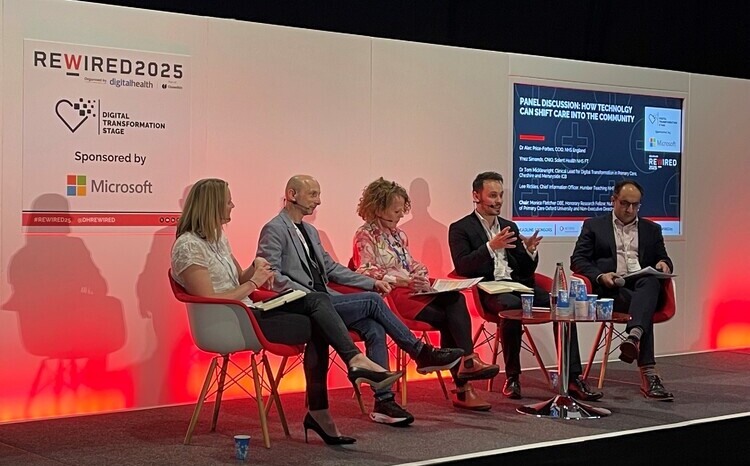Universal Care Plan expanding to include diabetes and chronic pain
- 11 November 2024

- OneLondon’s shared care planning solution, the Universal Care Plan, is expanding to include diabetes and chronic pain
- Gary McAllister, former chief technology officer at OneLondon, said there are now 65,000 care plans in use
- The figures were presented at the Digital Health Networks Exchange event in London
OneLondon’s shared care planning solution, the Universal Care Plan (UCP), is expanding to include diabetes and chronic pain, offering support to more patients.
The UCP, which went live in August 2022, originally supported end-of-life patients to record their preferences for care and where they would like to die. The programme was extended to support sickle cell disease patients in March 2024.
Gary McAllister, former chief technology officer at OneLondon, told attendees at the Digital Health Networks Exchange event in London on 7 November 2024, that the UCP will also encompass diabetes and chronic pain.
“We said we wanted the UCP to serve a purpose for every single clinical network. Initially it was end of life, but it is now moving into diabetes, and we’ve done some work with chronic pain too,” McAllister said.
The chief information technology officer at Dell Technologies said that there are now 65,000 care plans in use, up from 24,000 care plans in September 2023.
He added that “71% of patients that are on an end-of-life pathway have their preference recorded, and then of those 67% of them end up passing away where they would like to”, showing the positive impact of the UCP.
McAllister said that “the most fundamental change” was when the UCP was integrated with the NHS App in November 2023.
“If you’re a patient, you can now access your UCP on your phone through the NHS App, and you can access all of your care plan and update your care plan from your phone, so it isn’t just about clinicians accessing the UCP and accessing it through the London care record,” he explained.
However he added that the integration with the NHS App took two years to achieve.
“We managed to get integration into some of what normally you would consider some of the hardest places to integrate with. EMIS and TPP we managed to integrate within a seven month period.
“The irony of what happened was it actually took us two years to get integration with the NHS App.”
He said that the NHS App is in “a challenging place”.
“They haven’t quite got to clarity in their minds as to what the NHS App is. They’ve gone mobile first, which is great, which means everything is going to be native, but they’ve not got an integrated model for third party systems to plug in.”
McAllister added that the app has a “challenging architecture with lots of moving parts that is really difficult and highly technically difficult to maintain because it was built on top of a lot of legacy services”.
“That’s where we’ve ended up, but hopefully the new digital health record architecture will change it over time, but it is going to take us some time to get there,” he said.
A spokesperson for OneLondon told Digital Health News in September 2024, that there are plans to include additional cohorts to the UCP, including dementia, frailty, children and young people, and learning disabilities.
OneLondon said that from December 2024, the UCP will “be transformed into a personalised care and support plan“.




